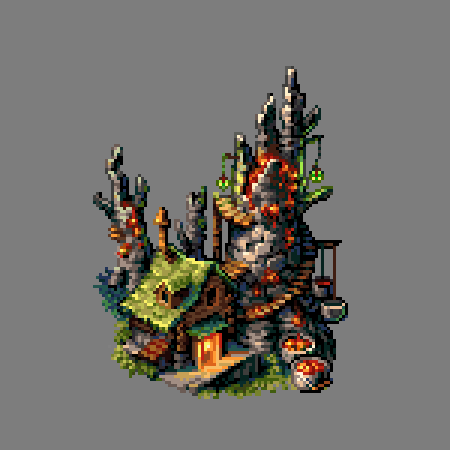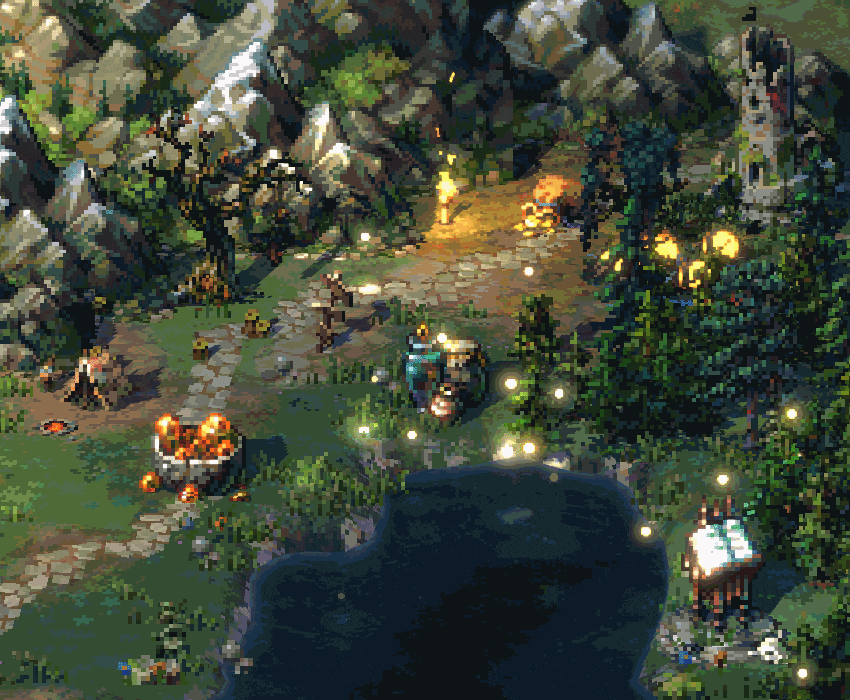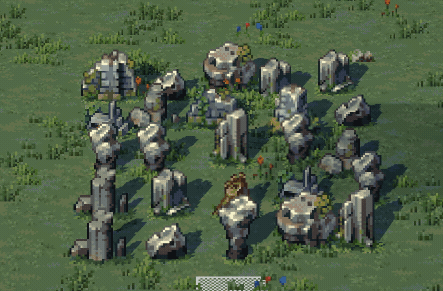Another fortnight, another blogpost! Rumor has it that Lord Manhammer had to change his name to “Lord Querkius”, and he’s knee deep in admin & branding work to make himself known throughout Barya again with his new moniker.
This means I get to hijack the development blog again and show you what we’ve been up to for the last two weeks! So let’s get right to it!
PIXEL ART GOODNESS
Team art have been working on pixel art all over the place, focusing on our campaign. Specifically our first campaign map to make it look as jaw dropping as possible. I for one, think they have done amazing progress, and if you stick around until the end of the post I’ll show you an amazing mood video that Patrik created.
AI IS GETTING BETTER
This is the more scary part of the blog post. Marcus improved the architecture to have the AI make smarter decisions. I’ll never win a game again!
We are not were we want to be, but we are getting closer. The changes we make now are mainly made to prepare for the things we want to do in the future.
However, we found and fixed why our AI seemed to have a death wish and always attacked the most difficult hostile around. It also didn’t recruit troops as fast as we wanted it to. All of that should be a bit better now.
FIXING BUGS
As all game development teams, we have bugs to fix. This sprint we have squashed quite a few. Most of them are difficult to show in a visual way. So I’ll highlight this clipping issue that Patrik solved earlier this week.
One bug was that our objects would clip into the ground at certain camera angles. Since our ground is 3D and our objects are billboarded 2D sprites, this is a fairly unique problem.
Patrik fixed this by doing the following changes:
Moved wielders slightly towards the camera
Hard cap at 55 degrees for all billboards
Reduced camera angle from 65 to 60
Unified the way we lean our landscape backwards for battle and adventure, and applied it to battle
It’s one of those issues that looks easy to fix on the outside, but is actually very complicated. Above is another image of the fix from the side.
CAMPAIGN
All our teams have been working with a campaign focus lately. Carl is working in an iterative fashion to fine tune our maps for the Arleon campaign and is making sure that all the other campaigns will make sense story wise as he goes along.
Can’t show you much from this yet, but it is very exciting!
DIALOGUE SYSTEM & TRADING
A part of our campaigns need wielders to talk to each other - which is what I and Christian have worked on lately. A challenge was to make this work through our in game level editor, and we still have some work to do.
Robin is working currently on the ability to trade troops & artifacts between your wielders! It’s a feature we wanted for a long time and it will be great to be able to play with that soon.
BURNED VILLAGE
And finally, here’s the amazing video showing a bit of collected progress from the art team. I really think it looks stunning, what do you think?
Phew! That was more than I intended to share ;) Hope you’ll enjoy it! I need to get back to fixing the camera system for the dialogues now.
This is also the last blog post of the year. Take care and we’ll see each other in 2021!
Please note that this is a dev blog. Features and graphics mentioned or displayed above may or may not change during the development process.








